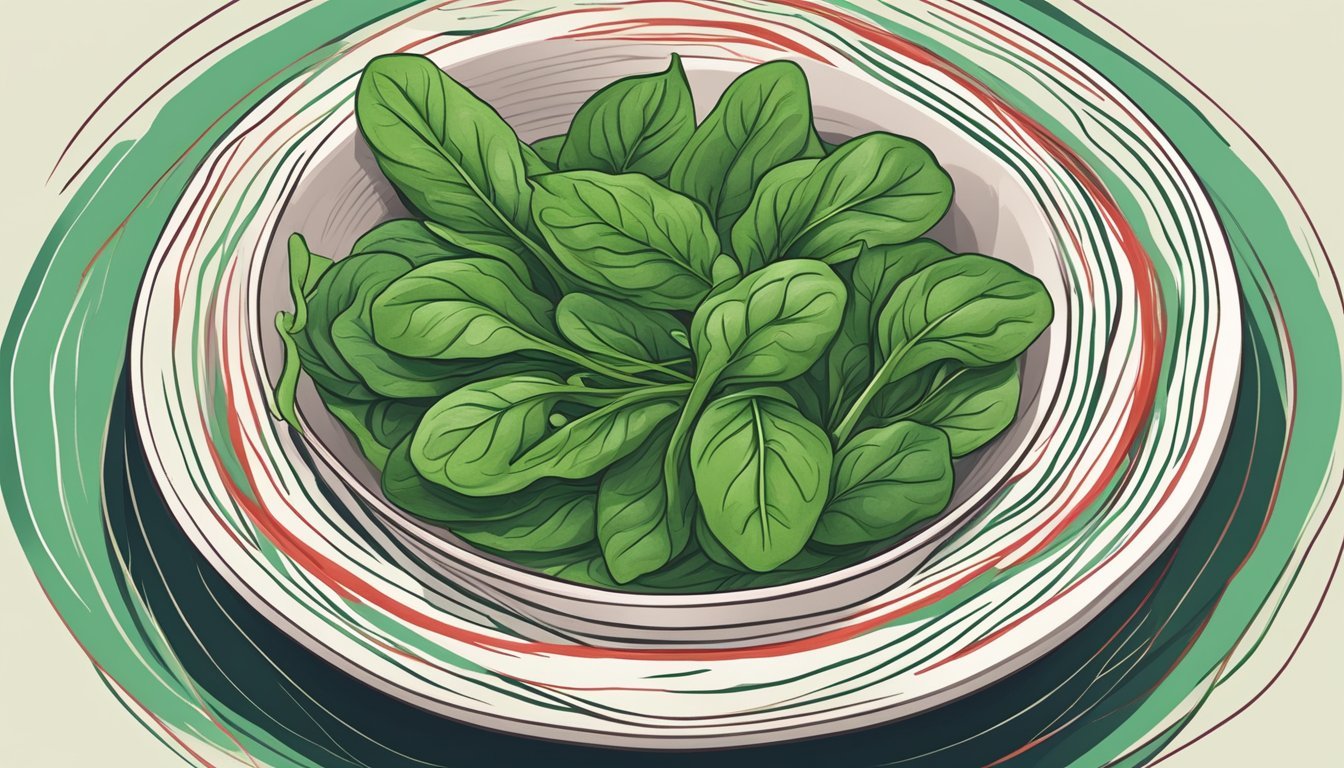Circulation-Boosting Foods to Improve Blood Flow Naturally
Optimal blood flow is crucial for maintaining overall health and well-being. Poor circulation can lead to a variety of health issues, from minor discomfort to serious conditions. Incorporating certain foods into your diet can significantly improve blood flow and circulation.
Nutrition plays a vital role in cardiovascular health. Healthy fruits, vegetables, and other nutrient-rich foods can support the circulatory system. This article explores various foods known to enhance blood circulation and provides insights into how they can benefit your health.
1) Beetroot
Beetroot is highly regarded for its ability to improve blood circulation. Rich in dietary nitrates, it aids in the production of nitric oxide. This compound helps to widen and relax blood vessels, enhancing blood flow.
In addition to promoting vascular health, beetroot can help lower blood pressure. This is due to its nitrate content, which has been linked to reduced risks of heart attacks and strokes.
Consuming beetroot has shown to boost blood flow specifically to the frontal lobe of the brain. This can enhance cognitive function and mental clarity.
Athletes may benefit from beetroot's ability to improve performance. By increasing oxygen delivery to tissues, it supports better endurance and stamina.
Incorporating beetroot into a balanced diet is not only beneficial for blood flow but also provides a good source of essential nutrients and antioxidants.
2) Garlic
Garlic is renowned for its health-promoting properties, particularly in enhancing blood flow. Rich in sulfur compounds, such as allicin, garlic can promote better circulation by widening blood vessels.
Garlic's antioxidants help reduce inflammation and free radicals, which can improve vascular health. Regular consumption can lower blood pressure by relaxing blood vessels, aiding in smoother blood flow.
Including garlic in the diet is also associated with reduced levels of cholesterol. This can prevent the buildup of plaques in the arteries, ensuring better overall circulation.
3) Ginger
Ginger is a potent root that has numerous benefits for blood flow and circulation. Rich in the natural compound gingerol, ginger aids vasodilation, which can improve blood flow and reduce blood pressure. This makes it a valuable addition to a cardiovascular-supportive diet.
Studies have shown that ginger helps in regulating blood sugar levels, which is crucial for maintaining healthy blood vessels. High blood sugar can damage blood vessels over time, and ginger's role in stabilizing these levels supports vascular health.
Furthermore, ginger has anti-inflammatory and antioxidant properties. These properties help prevent oxidative stress, which can damage blood vessels and impede circulation. Regular consumption of ginger can, therefore, contribute to better overall cardiovascular function.
In people with diabetes, ginger has been found to lower triglyceride and cholesterol levels. Excessive levels of these lipids can hinder proper blood flow. By managing these levels, ginger further ensures smoother circulation.
In summary, ginger's diverse range of beneficial components, such as gingerol, supports various aspects of circulatory health. Incorporating ginger into one's diet can offer significant advantages for blood flow and heart health.
4) Dark Chocolate
Dark chocolate, when consumed in moderate amounts, is known for its potential benefits to blood flow. It contains high levels of cocoa, which is rich in polyphenols. These compounds are recognized for their ability to enhance the production of nitric oxide in the body.
Nitric oxide causes blood vessels to dilate, supporting smoother and more efficient blood flow. This effect can contribute to better cardiovascular health, reducing the risk of heart-related issues.
To gain the benefits, it’s recommended to choose dark chocolate with a high cocoa content, preferably between 70-85%. Lower cocoa percentages or milk chocolate do not provide the same positive effects.
Additionally, dark chocolate is a source of antioxidants, which play a role in maintaining overall vascular health. Fresh consumption without dairy products is suggested, as dairy can inhibit the antioxidant capabilities of dark chocolate.
Moderation is key, as dark chocolate is calorie-dense. A small portion, such as one to two ounces, can be sufficient to experience its health benefits while avoiding excessive calorie intake.
5) Cayenne Pepper
Cayenne pepper is a popular spice known for its ability to boost blood flow. Its key compound, capsaicin, helps to widen blood vessels, promoting better circulation.
Capsaicin in cayenne pepper promotes vasodilation. This process helps improve the flow of blood through arteries and veins, reducing the risk of blockages and heart-related issues.
Cayenne pepper has been noted for encouraging fibrinolytic activity. This helps prevent the formation of blood clots, ensuring that blood can move freely through the circulatory system.
Additionally, cayenne pepper can slightly increase metabolism. This can support overall cardiovascular health by helping maintain a healthy weight, which is beneficial for blood flow.
Incorporating cayenne pepper into meals is easy. It can be added as a spice to soups and stews or sprinkled over dishes to enhance flavor while supporting blood circulation.
6) Turmeric
Turmeric is a golden-orange spice derived from the root of the Curcuma longa plant, a relative of ginger. Known for its distinct color and flavor, turmeric has been used in cooking and traditional medicine for centuries.
Turmeric is rich in curcumin, a compound that has been studied for its potential health benefits. Curcumin has anti-inflammatory and antioxidant properties, which can contribute to better blood circulation.
Research suggests that curcumin may help relax blood vessels and improve blood flow. This could support cardiovascular health by reducing the risk of plaque buildup and promoting a healthier heart.
Incorporating turmeric into the diet can be simple. It can be added to soups, stews, curries, or smoothies. Some people also consume turmeric as a supplement, though it’s important to consult with a healthcare provider before starting any new supplement regimen.
For optimal benefits, turmeric should be part of a balanced diet rich in fruits, vegetables, and other anti-inflammatory foods. Regular physical activity can further enhance its positive effects on blood flow and overall health.
7) Salmon
Salmon is excellent for improving blood flow due to its high omega-3 fatty acid content. These essential fats help reduce inflammation, which can enhance circulation and cardiovascular health. Omega-3s also reduce the "stickiness" of platelets in the blood, aiding in smoother blood flow.
Cold-water fish like salmon are particularly rich in these beneficial fats. Incorporating salmon into meals is a tasty way to support heart health and promote better circulation.
Consuming salmon regularly can help keep arteries flexible and free of plaque buildup. This is crucial for maintaining optimal blood flow and reducing the risk of heart-related issues.
Salmon is versatile and can be grilled, baked, or added to salads and pastas. Its inclusion in the diet is both delicious and beneficial for circulatory health.
8) Pomegranate
Pomegranates are well-regarded for their potential to enhance blood flow. These fruits are packed with antioxidants, which combat inflammation and support overall vascular health.
Consuming pomegranates or their juice has been linked to improved arterial function. Nitric oxide, found in pomegranates, dilates blood vessels, allowing for better circulation of blood, oxygen, and nutrients.
Additionally, pomegranates can help reduce blood pressure. Lowering blood pressure reduces strain on the circulatory system, promoting better heart health. Thus, they can be a valuable addition to a diet aimed at improving cardiovascular function.
Including pomegranates in daily nutrition can be a tasty and effective way to keep the circulatory system functioning healthily.
9) Spinach
Spinach is a nutrient-rich leafy green that supports blood flow. It is high in folate, a type of B vitamin that helps improve vascular function. Folate plays a crucial role in male sexual health by boosting blood circulation.
Additionally, spinach is loaded with heart-healthy nutrients like potassium, magnesium, and iron. These minerals work to regulate blood pressure and enhance overall cardiovascular health.
The presence of antioxidants in spinach helps reduce oxidative stress and inflammation. This can further benefit blood vessels and maintain healthy circulation.
Spinach is also a low-calorie food, making it a smart addition to any diet. Enjoy spinach in salads, smoothies, or cooked dishes to harness its health benefits.
10) Watermelon
Watermelon is a refreshing and hydrating fruit that provides several benefits for blood flow. It contains high levels of citrulline, an amino acid that can improve blood flow by relaxing blood vessels.
This fruit is packed with antioxidants, such as lycopene and vitamin C, which help reduce inflammation and enhance cardiovascular health. The potassium in watermelon also helps regulate blood pressure, promoting better circulation.
Eating watermelon can be a delicious way to support your heart and cardiovascular system. Its fiber content helps slow down the absorption of sugar, making it a healthier option for maintaining steady blood sugar levels. Incorporating watermelon into your diet can be a tasty and effective strategy for enhancing blood flow.
The Importance of Blood Flow for Health
Adequate blood flow ensures essential nutrients and oxygen reach every cell in the body. It helps in waste removal, maintains temperature, and supports overall well-being.
Why Blood Flow Matters
Smooth blood circulation is crucial for delivering oxygen and nutrients to tissues and organs. This process helps them function optimally. Good circulation supports heart health, assisting in managing blood pressure and reducing cardiovascular disease risk.
Proper blood flow also aids in waste removal, clearing out carbon dioxide and toxic substances. This detoxification is vital for maintaining homeostasis. Blood flow influences immune response, as white blood cells travel through the bloodstream to sites of infection or injury.
Common Issues with Blood Circulation
Poor circulation can result from several factors including sedentary lifestyle, unhealthy diet, and underlying medical conditions such as diabetes and cardiovascular diseases. Symptoms might include numbness, tingling, and swelling in limbs, often indicative of a block or impaired flow.
Varicose veins, cold extremities, and slow healing wounds are common signs of impaired circulation. Conditions like atherosclerosis, where arteries narrow due to plaque buildup, directly restrict blood flow, leading to serious complications like heart attacks or strokes. Regular exercise and a balanced diet are key in mitigating these risks.
How Nutrients in Food Influence Blood Flow
Certain nutrients in food play a significant role in promoting healthy blood circulation. Key components include vitamins, minerals, and antioxidants, each contributing to the proper functioning of the circulatory system.
Vitamins and Minerals
Vitamins and minerals are essential for various physiological functions that affect blood flow. Vitamin C enhances the production of collagen, strengthening blood vessel walls. Foods rich in Vitamin C include citrus fruits, strawberries, and bell peppers.
Vitamin E acts as a blood thinner, preventing the formation of clots. Avocados, almonds, and spinach are good sources. Iron is critical for the formation of hemoglobin, allowing red blood cells to carry oxygen. Iron-rich foods are red meat, beans, and lentils. Magnesium helps relax blood vessels, improving circulation, found in nuts, seeds, and leafy greens. These nutrients ensure that blood can flow freely and efficiently throughout the body.
The Role of Antioxidants
Antioxidants protect the body from damage caused by free radicals and oxidative stress, which can impair blood flow. Flavonoids and polyphenols are powerful antioxidants found in berries, dark chocolate, and tea. These compounds help maintain the flexibility of blood vessels, ensuring smooth blood flow.
Beets contain nitrates that convert to nitric oxide, a compound that dilates blood vessels. Garlic has allicin, which promotes vasodilation and reduces blood pressure. Consuming a diet rich in antioxidants helps maintain healthy arteries and improves overall circulatory health.
Understanding the Cardiovascular System
The cardiovascular system is an intricate network that ensures the delivery of oxygenated blood to tissues and the removal of waste products. It primarily includes the heart, arteries, veins, and capillaries.
Functions of Arteries and Veins
Arteries are blood vessels that carry oxygen-rich blood away from the heart to various parts of the body. These vessels have thick, muscular walls that can handle high pressure as the heart pumps blood through them. Key arteries include the aorta and its branches.
Veins, on the other hand, transport deoxygenated blood back to the heart. They have thinner walls and often contain valves to prevent the backward flow of blood. The superior and inferior vena cava are major veins that handle this critical return flow. Veins work against gravity, especially in the legs, to bring blood back to the heart.
Blood Flow Regulation
Blood flow is regulated through a combination of neural, hormonal, and local mechanisms. The autonomic nervous system plays a crucial role, with sympathetic nerves increasing heart rate and blood pressure, while parasympathetic nerves reduce them.
Hormones like adrenaline and noradrenaline adjust blood vessel diameter. Local factors, such as nitric oxide, assist in dilating or constricting blood vessels based on the immediate needs of tissues.
Baroreceptors in the arteries sense changes in blood pressure and send signals to the brain to adjust vessel diameter and heart rate accordingly. Chemical receptors detect levels of oxygen, carbon dioxide, and pH, ensuring tissues receive adequate oxygen and nutrients.








